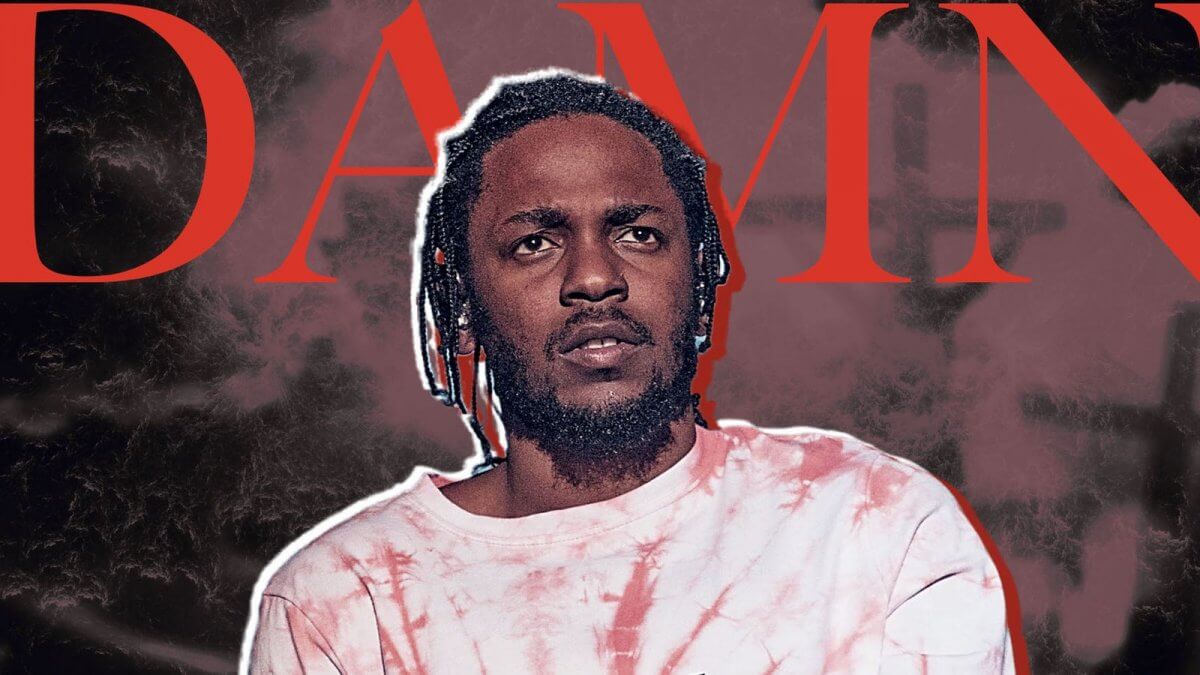‘Kung Fu Kenny’ blessed the hip-hop world once again with his fourth studio album, DAMN., gifting us with a spiritual masterpiece that has religious connotations deeper than its Good Friday release date suggests.
Lamar has a history of introducing albums with sombre, drowned out speech, foreshadowing whatever convention the album seems to follow. DAMN. is no different, opening with ‘Blood.’, a track that combines suspense worthy of Quentin Tarantino with self-critical commentary, the ultimate precedent for the banger that is ‘DNA.’.
Lamar is arguably his best on ‘DNA.’, giving you Compton in its purest form: unhindered, unadulterated BARS; ‘I know murder, conviction. Burners, boosters, burglars, ballers, dead, redemption.’ The track is somewhat satirical, highlighting only the culturally accepted themes that people know Compton California to be, reminiscent of his blatantly ‘street’ lines on ‘Backstreet Freestyle’, ‘pray my d—k get big as the Eiffel tower, so I can f—k the world for 72 hours.’ Away from the ignorance, Kendrick begins his descent into the socio-religious sphere of self-worth on ‘YAH.’, a loop that makes for easy listening. Lamar serves up this placid Kendrick flow as though he is burnt out from his tirade from the previous track. The golden line that sums up the struggle in ‘YAH.’ – ‘My cousin Carl Duckworth said, know my worth, and Deuteronomy say that we all been cursed’ – is a jab at his own hypocrisy as a sinner that attempts to justify his own worth.
‘Pride.’ is vintage Kendrick, his obsession with switching flows is evident, boasting his colourful schematic palette with a flimsy hook and a justified no-nonsense verse. Attempting to crack the paradox of a perfect world Kendrick explains his lust for imperfection: ‘I don’t love people enough to put my faith in men; I put my faith in these lyrics, hoping I make amends.’ This flailing trust explains his decision to be self-dependent, conveying his faith through his own art: lyrics.
For a great portion of the album, Kendrick provides subtle comments on his relationship with God; in ‘FEAR.’, the commentary synthesises and the relationship becomes vivid. A beat that reeks of west coast nostalgia and Dr. Dre synths, lays the foundation for Kendrick to plea – over the course of four astonishing verses – for an explanation into the severity of his fear: ‘Why God, why God, do I gotta suffer?’ Subverting the optimistic cliché of most rapper’s aspirational relationship with God, Kendrick turns interrogator and adjudicator of the struggles that God places upon him. His fluctuation between sublime piety and nihilism creates a lyrical paradox to the tune of: ‘if I love God and God does not bless me, should I love?’
His previous album To Pimp a Butterfly focused on the national struggle an African American man faces; a protest album vastly different to DAMN. where he centralises his struggle back to his mind, body and soul. To Pimp a Butterfly layered itself with external perspectives, picking apart the ‘Uncle Sam’ culture of America, which pre-disposed the African American people to the institutionalisation of crime and street adulation. The raunchy exposé ‘The Blacker the Berry’ paid homage to the civil rights movement that embodied the 1970s, a track laced with references to cultural figures, seemingly paved the way for the follow up album of DAMN. as Lamar himself becomes a cultural icon.
Birth and redemption: Kendrick has created a unique two-fold approach to listening to his album. The fanfare that followed the release of the album anticipated that a follow-up to DAMN. would be released almost immediately; however listening to the album back-to-front would envisage the resurrection of Kendrick. ‘What happens on earth stays on earth, we gon’ put in reverse’ a busty birth’ – Kendrick approaches ‘DUCKWORTH.’ with no frailty, no fear, as though he had already been killed and is ready to descend back to reality. His Christ-like performance of living through fame, trials and tribulations leverages the theory that Kendrick has inducted himself as the chosen one.
DAMN. is cold hard proof of Kendrick’s ability to mesh the two worlds of gangster rap and spirituality with a unique smoothness and flair. Religion and hip-hop are no strangers to each other; rappers such as Kanye West, J Cole and Nas all pay homage to that in their classics. The subliminal nature of his wordplay opens his work up for interpretation, Lamar invites the listener to read between the lines, and appreciate his liquid verbal gold for what it is really worth.
We acknowledge the Ngunnawal and Ngambri people, who are the Traditional Custodians of the land on which Woroni, Woroni Radio and Woroni TV are created, edited, published, printed and distributed. We pay our respects to Elders past and present. We acknowledge that the name Woroni was taken from the Wadi Wadi Nation without permission, and we are striving to do better for future reconciliation.
